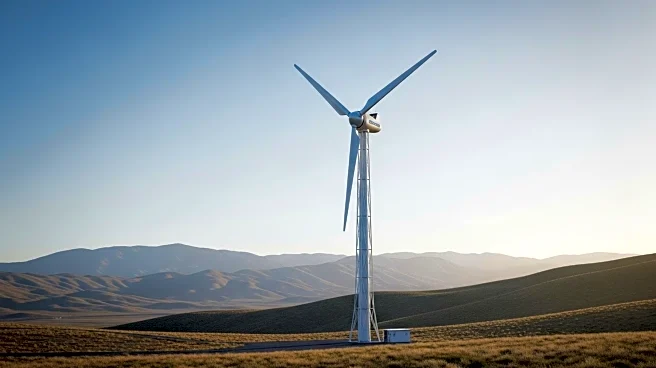What is the story about?
What's Happening?
Chinese green technology companies, including leaders in solar, battery, and electric vehicle sectors, have significantly increased their foreign investment plans, pledging over $210 billion since 2022. This expansion aims to capture new markets, avoid tariffs, and access raw materials. The investments span more than 50 countries, with a focus on Indonesia, Morocco, and Middle Eastern nations. In the U.S., investments target the solar supply chain and lithium-ion battery plants, influenced by domestic market incentives under the Inflation Reduction Act. However, policy uncertainty and revisions to tax credit rules may affect project timelines. The shift in investment destinations reflects changing geopolitical dynamics and strategic priorities.
Why It's Important?
China's aggressive expansion in green technology manufacturing abroad highlights its role as a key player in the global energy transition. These investments can lower costs and increase accessibility to clean technologies worldwide, but also raise concerns about over-reliance on China. The U.S. and other countries may face challenges in balancing economic benefits with geopolitical risks and environmental standards. The expansion could influence global supply chains, trade policies, and international relations, as countries navigate the complexities of sustainable development and industrial policy.
Beyond the Headlines
The expansion of Chinese green tech firms abroad presents ethical and environmental challenges, including concerns about labor conditions and environmental degradation in host countries. Local communities have raised issues about limited labor protections and unsafe working conditions. As China exports its manufacturing capacity, host countries must negotiate terms that prioritize sustainable development and address these concerns. The geopolitical implications of China's investments may also affect international alliances and trade relations.















